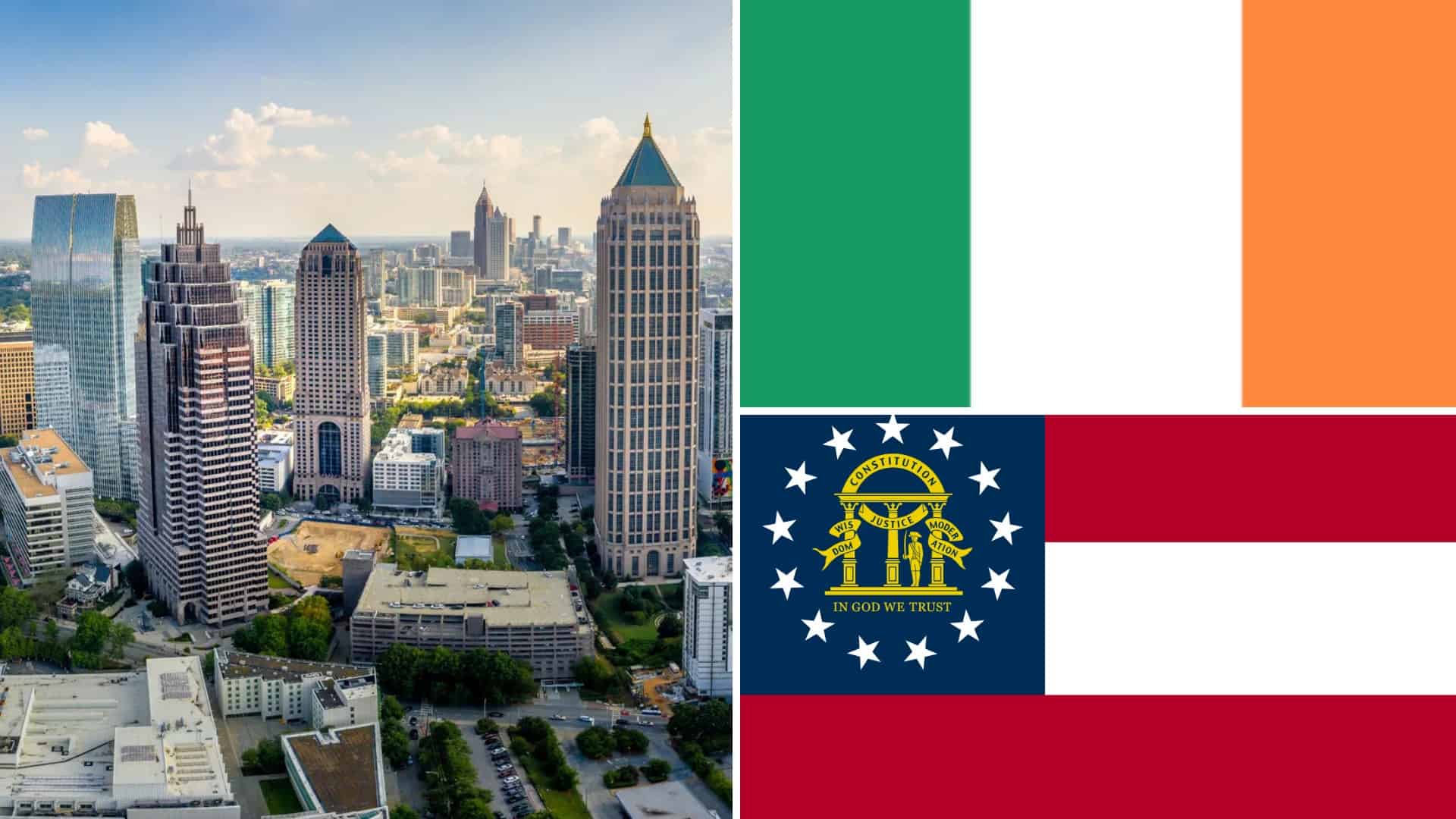No products in the cart.

Atlanta, known as the capital of the South, is home to a rich and diverse cultural heritage shaped by the contributions of immigrant communities. Among them, the Irish have played a pivotal role in building the city and enriching its culture. From the early days of settlement to modern celebrations of Irish heritage, Atlanta’s Irish community has left an enduring mark on the city.

The Irish began arriving in Atlanta in the 19th century, drawn by opportunities in construction, farming, and the burgeoning railroad industry. As the city grew into a transportation hub, Irish immigrants became vital to its development, working as laborers, craftsmen, and engineers. The construction of the Western & Atlantic Railroad, for which Atlanta was originally named, saw significant contributions from Irish workers.
Many Irish immigrants came to Atlanta following the Great Famine (1845–1852), bringing with them their resilience and cultural traditions. Though smaller in numbers compared to cities like New York or Boston, the Irish community in Atlanta quickly integrated and established themselves as an influential group in the city’s growth.
The Irish community played a significant role in shaping Atlanta’s economy, infrastructure, and culture. In the years following the Civil War, Irish laborers were instrumental in rebuilding the city. Many found employment in construction and railroads, helping Atlanta rise from the ashes of war to become the economic powerhouse of the South.
Irish entrepreneurs also contributed to Atlanta’s development, opening businesses, shops, and pubs that became staples in the community. Additionally, Irish leaders in politics and education helped shape the city’s policies and institutions, advocating for workers’ rights and community development.
Unlike cities with well-defined Irish enclaves, Atlanta’s Irish population spread across the city. However, certain areas became focal points for Irish-American life:

Atlanta’s St. Patrick’s Day celebrations are among the largest and most vibrant in the Southeast. The Atlanta St. Patrick’s Parade, first held in 1858, is one of the oldest St. Patrick’s Day parades in the United States. Featuring marching bands, Irish dancers, and colorful floats, the parade attracts thousands of attendees each year.
In addition to the parade, the city hosts various St. Patrick’s Day events, including:

Atlanta’s Irish pubs serve as cultural landmarks, offering traditional Irish fare, live music, and a welcoming atmosphere. Some notable pubs include:
These pubs are more than dining establishments; they are gathering places where the Irish community and others come together to celebrate Irish culture.

Atlanta’s Irish heritage is preserved through landmarks and cultural institutions that honor the contributions of Irish immigrants:
Today, Atlanta’s Irish-American community remains active and vibrant. Organizations like the Atlanta Irish Network and cultural events ensure the traditions and contributions of the Irish continue to thrive. Irish dance schools, such as the Drake School of Irish Dance, and Gaelic sports clubs, like Atlanta GAA, keep the spirit of Ireland alive in the city.
Events such as the annual IrishFest Atlanta highlight Irish music, dance, and storytelling, while local pubs and restaurants host regular events celebrating Irish heritage.
Just a short drive from Atlanta, the North Georgia Celtic Festival celebrates Irish and Celtic culture through music, dance, and traditional crafts. Held annually, the festival brings together performers and artisans to showcase the rich heritage of the Celtic nations, offering Atlantans a deeper connection to their Irish roots.
From their early contributions to the railroads and construction to their vibrant modern-day celebrations, the Irish have left an indelible mark on Atlanta. The city’s Irish community embodies resilience, pride, and a strong sense of heritage. Whether attending the St. Patrick’s Day Parade, visiting historic landmarks, or enjoying a pint at an Irish pub, Atlanta offers countless opportunities to connect with its rich Irish history and culture.
















